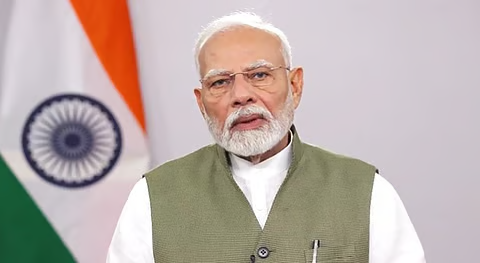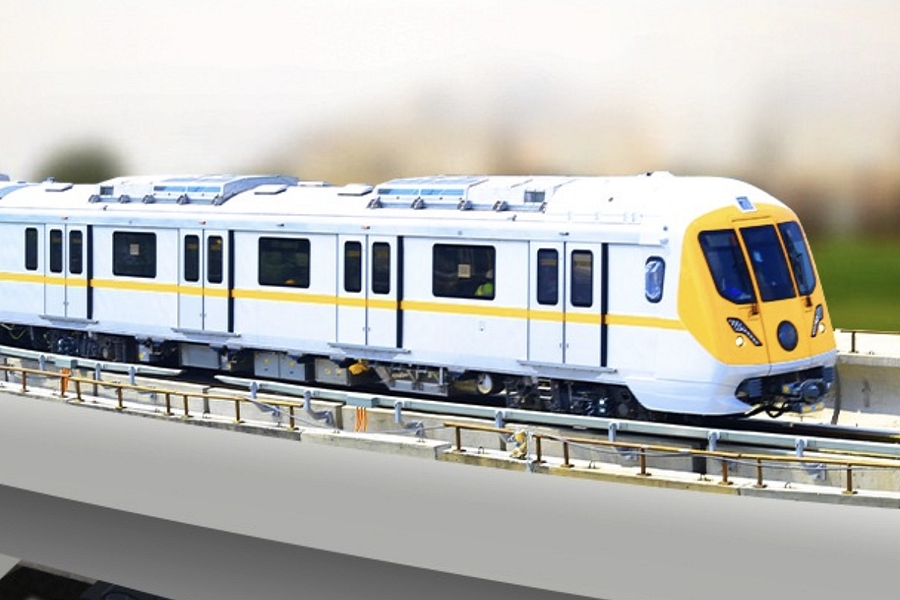
Prime Minister Narendra Modi’s upcoming inauguration of Indore’s first-ever metro system, along with two newly built airports in Madhya Pradesh, marks a transformative moment in the state’s infrastructural and economic landscape. These projects symbolize India’s ongoing efforts to enhance urban mobility, strengthen regional connectivity, and promote sustainable growth across its diverse states.
Madhya Pradesh, centrally located and rich in cultural heritage, has long sought to accelerate its development and improve transportation options for millions. The launch of Indore’s metro rail system will revolutionize daily commutes in the city, while the two new airports promise to open new gateways for business, tourism, and trade — ushering in a new era of prosperity and opportunity.
Indore Metro: Revolutionizing Urban Transit and Shaping the City’s Future
Indore is often hailed as the commercial and educational hub of Madhya Pradesh, but with rapid population growth and urbanization, the city has faced mounting challenges related to traffic congestion, pollution, and inefficient public transport. The introduction of the metro system represents a visionary leap toward tackling these issues head-on.
The metro project is designed to provide a safe, fast, and eco-friendly alternative to road travel, connecting major residential, commercial, and institutional areas of the city with seamless convenience. The sprawling metro corridor has been developed using modern technology and sustainable materials, aiming to minimize environmental impact while maximizing commuter comfort.
Residents can expect significant reductions in travel time, with the metro enabling swift and reliable transit across Indore. By encouraging a modal shift from private vehicles to public transport, the metro also promises to ease road congestion, cut emissions, and improve air quality — a critical benefit for urban health and sustainability.
Beyond daily commuting, the metro is poised to spur economic activity by attracting real estate investments around transit hubs, boosting retail businesses, and generating thousands of jobs during and after construction. This infrastructure enhancement aligns with the government’s vision of transforming Indore into a smart city, leveraging technology and green solutions to foster a high quality of urban life.
The metro stands as a testament to the city’s growing stature and ambition, serving as a model for other cities in Madhya Pradesh and across India. Its successful implementation is expected to encourage similar transit-oriented development projects in other emerging urban centers, helping India meet its targets for sustainable urbanization.
New Airports in Madhya Pradesh: Expanding the State’s Air Connectivity and Economic Horizons
Alongside the metro inauguration, Prime Minister Modi will also unveil two new airports within Madhya Pradesh — infrastructure designed to significantly bolster the state’s connectivity and economic prospects.
Air transport is a vital artery for modern economies, facilitating rapid movement of passengers and cargo across vast distances. The newly inaugurated airports will connect Madhya Pradesh more efficiently to major domestic and international destinations, enhancing the state’s appeal as a destination for business, tourism, and investment.
Improved air connectivity is especially critical for Madhya Pradesh’s industrial sectors, which rely on efficient logistics to compete in global markets. The airports will reduce transportation costs, shorten delivery times, and create fresh opportunities for export-oriented enterprises.
Tourism, a growing pillar of the state’s economy, stands to gain immensely from easier access. Madhya Pradesh is home to a wealth of cultural heritage sites, wildlife reserves, and natural beauty — attractions that are poised to see an uptick in visitors with improved air routes.
Strategically located, the airports also facilitate balanced regional development by distributing connectivity benefits across different districts. This approach counters the historical concentration of infrastructure investment in major metros and helps democratize economic opportunities.
In alignment with national policies such as the UDAN scheme, which seeks to improve regional air connectivity, Madhya Pradesh’s new airports will integrate seamlessly with existing transportation networks, creating multimodal hubs that foster smooth transfers between air, road, and rail.
Economic Transformation: Infrastructure as the Backbone of Growth
The inauguration of Indore’s metro and two new airports is not just an exercise in building structures; it is an investment in the state’s future economic vitality.
Robust infrastructure directly translates to greater productivity and competitiveness. The metro reduces travel time lost in traffic jams, enhancing worker efficiency and enabling businesses to operate with greater agility. Airports improve supply chain efficiency, expanding markets for local producers and manufacturers.
These projects will also generate widespread employment, both during the construction phase and through ongoing operations and maintenance. Ancillary industries such as hospitality, retail, and transport services will flourish, creating ripple effects across the economy.
Moreover, improved connectivity makes Madhya Pradesh a magnet for investors, signaling a business-friendly environment capable of supporting industrial growth and innovation. This can accelerate the emergence of technology parks, export zones, and manufacturing hubs, contributing to India’s broader goal of becoming a global economic powerhouse.
In addition, cleaner urban transport options and reduced emissions align with international sustainability goals, potentially attracting green investments and improving public health outcomes — factors increasingly valued by investors and citizens alike.
Social Upliftment: Accessibility and Inclusivity at the Forefront
Beyond economic metrics, these projects carry immense social significance by expanding access and inclusion.
The metro system will dramatically improve daily mobility for students, workers, and marginalized communities who often face long, expensive, and unsafe commutes. Affordable and efficient public transit empowers individuals by connecting them to education, healthcare, and employment opportunities more reliably.

Likewise, the airports will open new doors for people in previously underserved regions, enabling greater access to opportunities far beyond state borders. Whether for business, education, healthcare, or cultural exchange, enhanced connectivity fosters social mobility and integration.
This infrastructural development reflects a commitment to inclusive growth — ensuring that benefits reach all strata of society, and that no community is left behind in the march toward modernization.
Political and Strategic Context: Decentralizing Development and Building National Integration
Prime Minister Narendra Modi’s direct role in inaugurating these projects reflects the central government’s broader strategy of promoting balanced, decentralized growth across India.
While metros and airports have traditionally been concentrated in megacities like Delhi, Mumbai, and Bengaluru, the government is keen on expanding such investments into tier-2 and tier-3 cities like Indore. This decentralization reduces urban pressure on overburdened metros, curbs excessive migration, and fosters equitable development.
These projects also fit into India’s national logistics and transportation vision, linking Madhya Pradesh as a vital node in domestic and international trade corridors. Improved infrastructure enhances India’s global competitiveness and economic resilience.
Strategically, Madhya Pradesh’s enhanced connectivity strengthens the central Indian region, which plays a crucial role in linking northern, western, and southern parts of the country. This integration supports national security, economic diversification, and social cohesion.
Environmental Sustainability: A Green Approach to Urban Infrastructure
A defining feature of the metro project is its environmental consciousness. Employing energy-efficient technologies such as regenerative braking and LED lighting, and incorporating green building standards, the metro reduces energy consumption and carbon emissions.
This commitment to sustainability echoes India’s climate goals and the global agenda for low-carbon urbanization. The metro reduces dependency on fossil-fueled vehicles, contributing to improved air quality in Indore.
Similarly, airport designs incorporate environmental best practices, including waste management, water conservation, and green landscaping, minimizing ecological footprints.
Such eco-friendly infrastructure initiatives position Madhya Pradesh as a leader in sustainable development and inspire other regions to adopt similar green strategies.
Future Prospects: Setting the Stage for Continued Growth and Innovation
The successful launch of Indore’s metro and the two airports is a harbinger of continued infrastructure-led growth in Madhya Pradesh.
The state government is already exploring further projects that integrate smart technology, renewable energy, and data-driven urban management, ensuring these developments remain responsive to evolving needs.
These advancements pave the way for comprehensive urban renewal, fostering not only physical infrastructure but also social and economic innovation.
With this strong foundation, Madhya Pradesh is poised to accelerate its journey toward becoming a model state for balanced, sustainable, and inclusive growth.
Conclusion: A New Dawn for Madhya Pradesh’s Connectivity and Development
The inauguration of Indore’s first metro rail system and two new airports by Prime Minister Narendra Modi is more than a ceremonial milestone. It is a transformative leap that promises to elevate Madhya Pradesh’s connectivity, economy, environment, and quality of life.
As these projects open new pathways for people, businesses, and ideas, they exemplify India’s bold vision of inclusive growth powered by sustainable infrastructure.
The people of Madhya Pradesh stand at the threshold of a brighter future — one where modern transport networks enable unprecedented opportunities, foster social inclusion, and place the state firmly on the map as a thriving, dynamic region of India.
